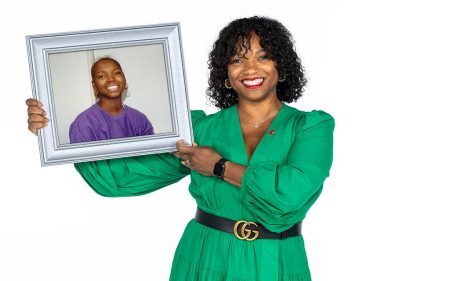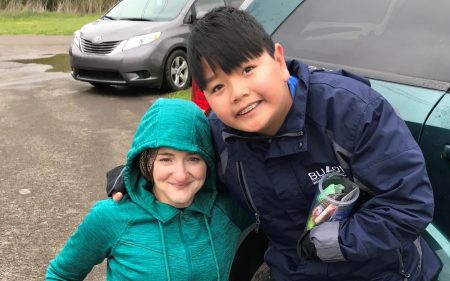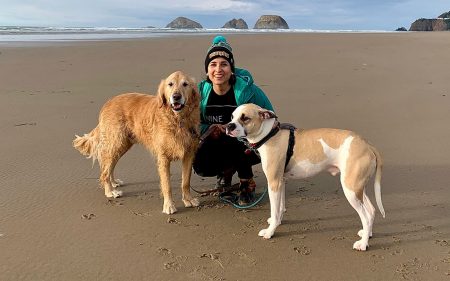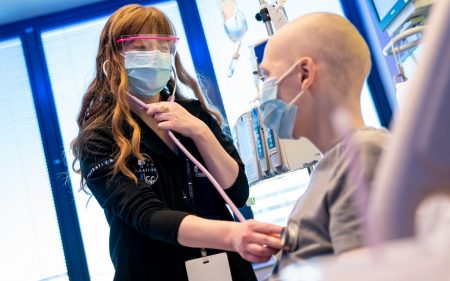
Women who Inspire: Dr. Julie R. Park
She leads a team of St. Jude doctors and researchers working to ‘get cures faster for kids with cancer’

February 19, 2025 • 3 min

Español | English
Dr. Julie R. Park grew up in Rhode Island in a large Italian family, where she was one of two girls in a rambunctious group of 15 grandchildren.
That upbringing, she says, taught her “it takes a village to get things done and that collaboration and community are important.”
“Everything I learned growing up is part of who I am today: You have to be able to stand up for things that are important,” she said.
She went to college and received her early medical training at the University of Vermont in Burlington, Vermont, and thought she’d spend the rest of her life in that tightknit northeast corner of the U.S. But then she traveled across the country to Seattle, Washington, to complete her medical training in pediatrics and pediatric hematology/oncology.
In Seattle, so far from home and family, life was not easy. She had to learn how to rebuild community and purpose in an unknown place, Park said, but was grateful she had colleagues and mentors at work to help guide her. It’s also the place that first sparked her interest in pediatric cancer research.
“I found my true love in what I wanted to do: to treat children with cancer and improve their outcomes,” Park said.

That principle still drives Park, who is now Chair of the Department of Oncology at St. Jude. She took over the leadership post a little more than a year ago, leaving Seattle where she had spent 30 years working to develop new therapies and improve survival rates for children with cancer.
Park is also the Associate Director for Translational Research in the Comprehensive Care Center at St. Jude. She works with teams of doctors and researchers who perform translational research — that is, how to turn the cutting edge, innovative work done in the labs of St. Jude into more effective treatments in clinics that treat kids with pediatric cancers. Through these roles, Park is hoping to chart substantial progress in tough-to-treat pediatric cancers like neuroblastoma.
“Neuroblastoma, I think, is the most fascinating and yet most frustrating cancer we treat in childhood,” Park said.
Children can be diagnosed with neuroblastoma as early as the day they’re born, Park said, but the average age for diagnosis is 2. Neuroblastoma is a difficult disease to detect in early stages and doesn’t follow predictable patterns in how it behaves in children, she said.
Fortunately, Park is overseeing further research on one of the biggest advancements in neuroblastoma research today: how to harness the power of the immune system to detect and kill neuroblastoma cells.
She envisions a more comprehensive platform of clinical trials that study and share everything from why some kids are more likely to develop cancer to the molecular underpinnings of tumors. It’s the kind of ambitious, far-reaching work only possible at a place like St. Jude, Park said.
Her vision for the future: oncology that is built on collaboration and innovation.
“At the base of all of this is collaboration –— and here I lean on the lessons I learned from my big Italian family where you have to collaborate to get that Christmas dinner ready for 18 people, collaborate to get all the grandkids to where they need to be… Researchers have to collaborate both internally and externally so that we can get cures faster for kids with cancer.”




















